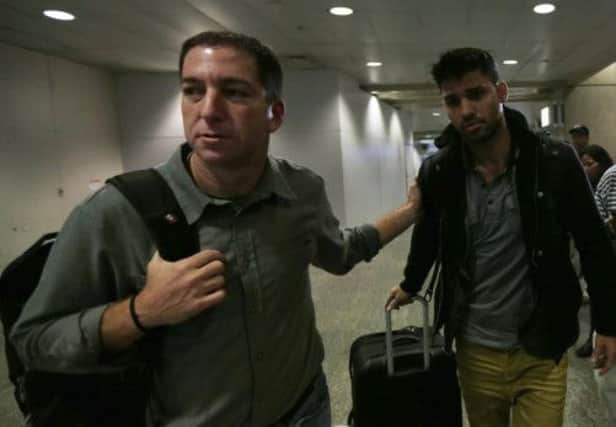Guardian reporter’s partner held at Heathrow


David Miranda was held by police under terror laws for nine hours – the legal limit before a suspect must be charged or released – as he changed planes on a journey from Berlin to his home in Brazil.
Labour politicians have called for an urgent investigation into the use of the powers to question Mr Miranda, who lives with reporter Glenn Greenwald, the journalist who interviewed American whistleblower Edward Snowden.
Advertisement
Hide AdAdvertisement
Hide AdMr Miranda said: “I remained in a room. There were six different agents coming and going. They asked questions about my entire life, about everything.
“They took my computer, video game, mobile phone, my memory card. Everything.”
Mr Miranda was stopped at 8:30am on Sunday when returning from a trip to Berlin. He was questioned under schedule 7 of the Terrorism Act 2000 which applies only at airports, ports and border areas, allowing officers to stop, search, question and detain individuals.
Shadow home secretary Yvette Cooper said: “Any suggestion that terror powers are being misused must be investigated and clarified urgently – the public support for these powers must not be endangered by a perception of misuse.”
Mr Miranda’s flights are reportedly being paid for by the Guardian. A spokesman for the newspaper said: “David Miranda is not an employee of the Guardian. As Glenn Greenwald’s partner, he often assists him in his work. We would normally reimburse the expenses of someone aiding a reporter in such circumstances.”
David Anderson QC, the independent reviewer of terrorism legislation, has asked for an official briefing on the arrest, which he described as an “unusual case”. He said that around two million people pass through UK ports every year.
“Of those, 60,000-70,000 are examined under this schedule 7 stop and only 40 of those are actually kept for longer than six hours,” he said.
“So you can see what an unusual case this was, if it’s correct that Mr Miranda was held right up to the nine-hour limit.”
Advertisement
Hide AdAdvertisement
Hide AdLabour MP Keith Vaz is to write to the Metropolitan Police over the issue. The chairman of the home affairs select committee said the action appeared to be a new use of terror laws.
Mr Vaz said: “What needs to happen pretty rapidly is we need to establish the full facts. Now you have a complaint from Mr Greenwald and the Brazilian government – they indeed have said they are concerned at the use of terrorism legislation for something that does not appear to relate to terrorism – so it needs to be clarified, and clarified quickly.”
Downing Street said the case was an “operational matter for the police”. A spokesman said: “The government takes all necessary steps to protect the public from individuals who pose a threat to national security.”.
“Schedule 7 forms an essential part of the UK’s border security arrangements. But it is for the police to decide when it is necessary and proportionate to use these powers.”
Bob Satchwell, executive director of the Society of Editors, said: “Journalism may be embarrassing and annoying for governments but it is not terrorism. It is difficult to know how in this instance the law was being used to prevent terrorism.
“On the face of it, it is difficult to avoid the conclusion that the detention of a journalist’s partner is anything other than an attempt to intimidate a journalist and his news organisation.
“It is another example of a dangerous tendency that the initial reaction of authorities is to assume that journalists are bad when, in fact, they play an important part in any democracy.”